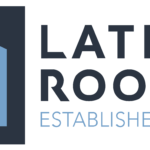Roof Financing Options for Those with Limited Credit History: A Guide
Understanding Limited Credit History
When it comes to financing a new roof, having a limited credit history can make the process more challenging. Without a established credit score, lenders may view you as a higher risk, leading to higher interest rates or even loan denials. However, there are still roof financing options available for those with limited credit history. In this guide, we’ll explore the available options and provide tips on how to navigate the process.
Types of Roof Financing Options
There are several types of roof financing options available, including personal loans, home equity loans, and credit cards. Personal loans are a popular choice, as they offer a fixed interest rate and a set repayment term. Home equity loans, on the other hand, allow homeowners to borrow against the equity in their home. Credit cards can also be used for roof financing, but be aware that interest rates may be higher and repayment terms may be less favorable.
Applying for Roof Financing with Limited Credit History
When applying for roof financing with limited credit history, it’s essential to prepare thoroughly. Start by gathering all necessary documents, including proof of income, proof of identity, and proof of residency. Next, research and compare different lenders to find the best option for your situation. Some lenders may offer more favorable terms for those with limited credit history, so it’s worth shopping around. Additionally, consider working with a financial advisor to help you navigate the process.
Roof Financing Options for Bad Credit
For those with bad credit, there are still roof financing options available. One option is to consider a co-signer, such as a family member or friend with good credit. This can help you qualify for a loan with a lower interest rate. Another option is to look into government-backed loans, such as FHA 203(k) loans, which are designed for homeowners with limited credit history. Additionally, some lenders offer specialized loans for those with bad credit, such as subprime loans.
Benefits of Roof Financing
Roof financing can provide numerous benefits for homeowners, including the ability to repair or replace a damaged roof without breaking the bank. It can also help to increase the value of your home, as a new roof can be a major selling point. Additionally, roof financing can provide peace of mind, as you’ll have a clear plan for paying for the roof repair or replacement.
Challenges of Roof Financing
While roof financing can be a valuable option, there are also some challenges to be aware of. One challenge is the high interest rates that may be associated with roof financing, particularly for those with limited credit history. Another challenge is the repayment terms, which may be longer than expected. Additionally, some lenders may require a down payment or other collateral.
Tips for Navigating Roof Financing
To successfully navigate the roof financing process, it’s essential to be prepared and do your research. Start by understanding your credit score and report, and work on improving your credit history if possible. Next, research and compare different lenders to find the best option for your situation. Additionally, consider working with a financial advisor to help you navigate the process.
Conclusion
In conclusion, roof financing options are available for those with limited credit history. By understanding the different types of roof financing options, applying for roof financing with limited credit history, and navigating the challenges of roof financing, homeowners can successfully finance a new roof. Whether you’re looking to repair or replace a damaged roof, or simply want to increase the value of your home, roof financing can provide a valuable solution.




